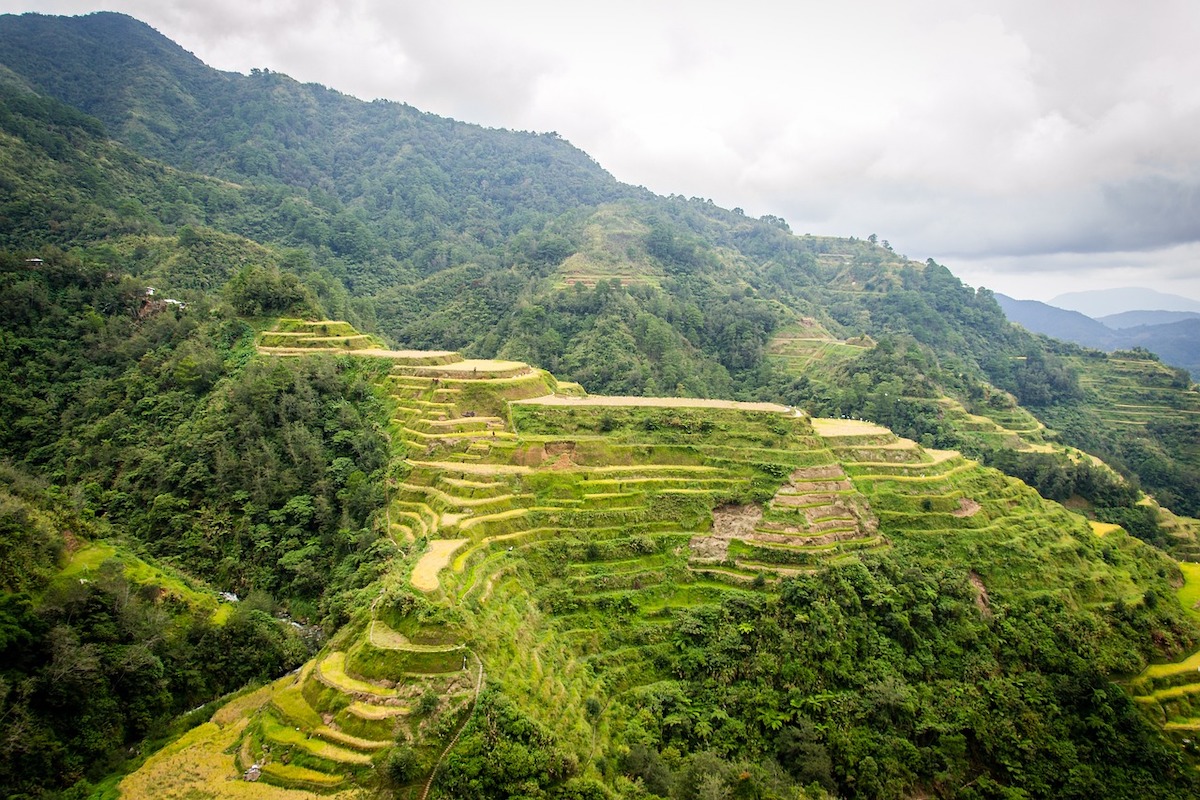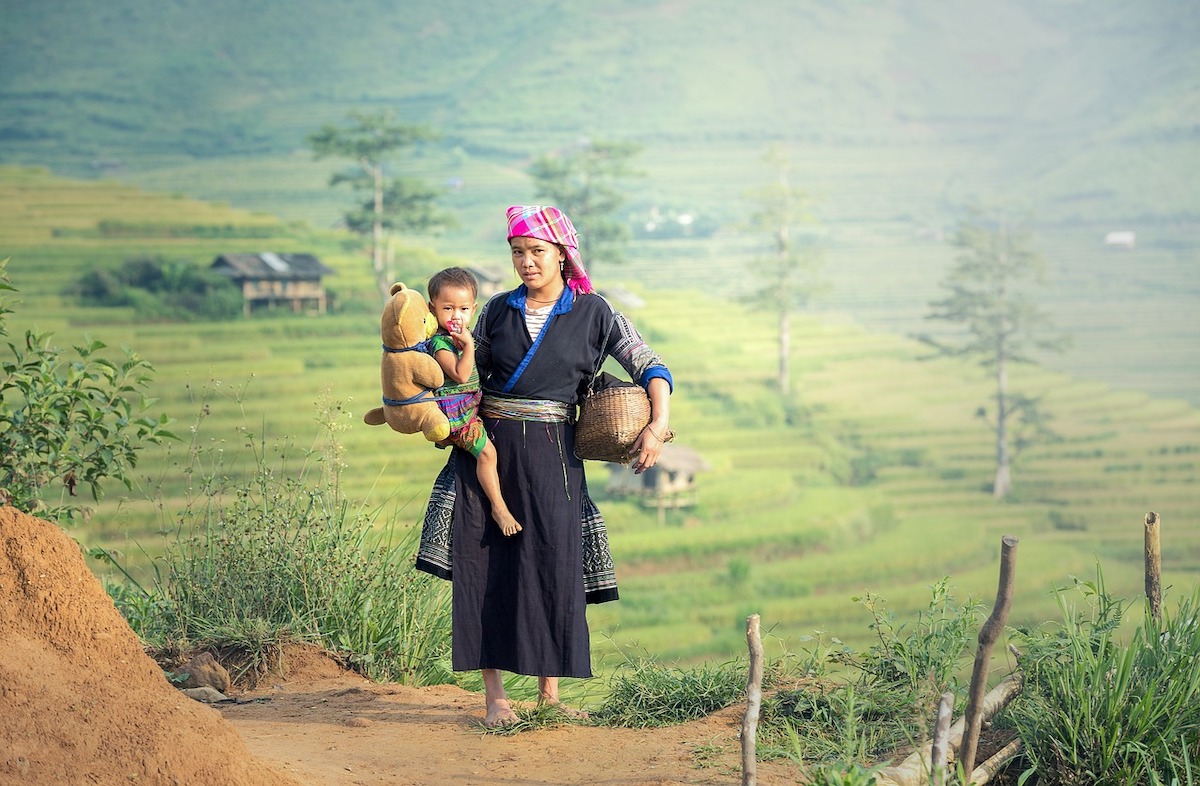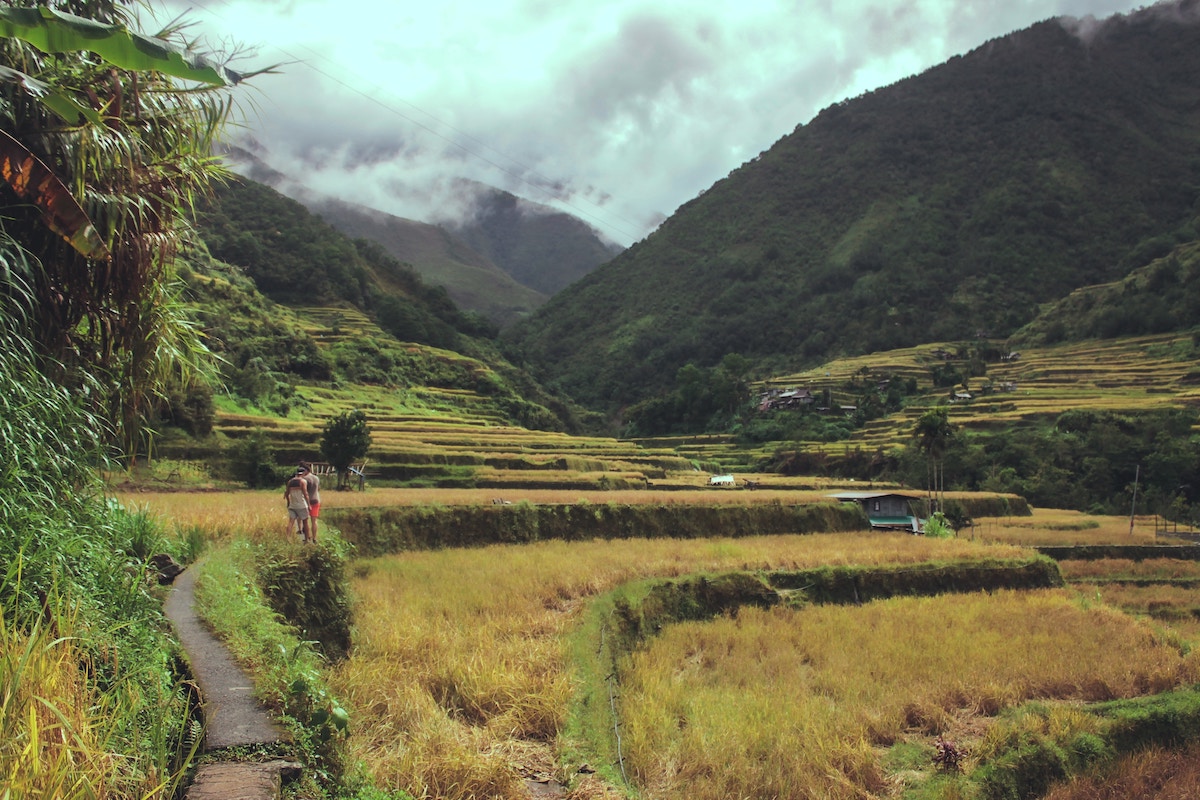
The Banaue Rice Terraces of the Philippines: Intro to the Batad, Bangaan and Hapao Terraces
By: Heather Keys
Skip to Section
In the northern reaches of the Philippines, the Banaue Rice Terraces are a UNESCO World Heritage site you may not have heard of—so let’s take a quick jaunt through this historical site and learn about a few things to see and do here!
The Beautiful Banaue Rice Terraces
The Banaue Rice Terraces’ history spans over 2,000 years. These terraces were crafted by the indigenous Ifugao people, who employed traditional agricultural practices and engineering techniques.
One of the many facets that make the Banaue Rice Terraces stand out is their distinctive landscape and sustainable agricultural practices. The region is irrigated by a complex network of canals and waterways designed to distribute water uniformly across the fields. Surrounding the terraces, you’ll find forests and mountain ranges.
Batad Rice Terraces
The Batad Rice Terraces are fashioned into a circular terraced valley—this distinctive amphitheater-like shape sets the Batad terraces apart from the others.
Bangaan Rice Terraces
Meanwhile, the Bangaan Rice Terraces have vertiginous slopes ensconced by surrounding mountain ranges, and have been an important food source for the Ifugao people.
Hapao Rice Terraces
Another great example of traditional agricultural practices and engineering techniques is the Hapao Rice Terraces, located in a valley surrounded by forests and mountains. Unlike the circular shape of the Batad Rice Terraces or the steeper slopes of the Bangaan Rice Terraces, the Hapao Rice Terraces are characterized by their rectangular shape, with a series of walls that serve as retaining structures for water and soil, creating a flat surface for cultivation.

Image by Sasin Tipchai from Pixabay
If you have the chance to visit the Banaue Rice Terraces, you’ll want to learn about the Ifugao people. The Ifugao people are the indigenous inhabitants of the Cordillera Region, having cultivated the rice terraces for over 2,000 years. In addition to their agricultural practices, they are known for their woodcarvings, basketry, and weaving, and have preserved their oral tradition through epic stories and poetry. Despite the challenges posed by modernization and globalization, the Ifugao people have managed to preserve their way of life.
Of course on a visit, you must try the food! Try traditional dishes like pinikpikan (a type of chicken soup) and tinudok (fried sticky rice balls), and learn about the locally sourced ingredients that give these dishes their distinct taste.
Plan your visit between February and May to fully experience the beauty of the Banaue Rice Terraces—the mild and dry weather during these months ensures you can fully appreciate the terraces and the gorgeous landscape surrounding them.
The best way to get here is to take a bus or car from Manila or other nearby cities. With various transportation options available, you can choose the one that best fits your needs and preferences.
Equip yourself with comfortable shoes suitable for hiking, as the terrain around the terraces can be uneven and steep. Opt for lightweight and breathable clothing to stay comfortable in the tropical climate. Remember to pack a hat, sunglasses, and sunscreen to protect yourself from the sun.
Have you had the chance to visit the Philippines? Share your stories and advice with the Frayed Passport community!
About the Author
Originally from Indiana, Heather believes every destination has a story worth telling and a reason to visit. With a deep love of adventure, history, and psychology, she shares travel trivia, tips, and inspiration to encourage you to explore the world with curiosity and optimism. Read her other articles on Frayed Passport here.Information published on this website and across our networks can change over time. Stories and recommendations reflect the subjective opinions of our writers. You should consult multiple sources to ensure you have the most current, safe, and correct details for your own research and plans.
Frayed Passport is a participant in the Amazon Associates Program, an affiliate advertising program designed to provide a means for sites to earn advertising fees by advertising and linking to Amazon.com. We also may share links to other affiliates and sponsors in articles across our website.






